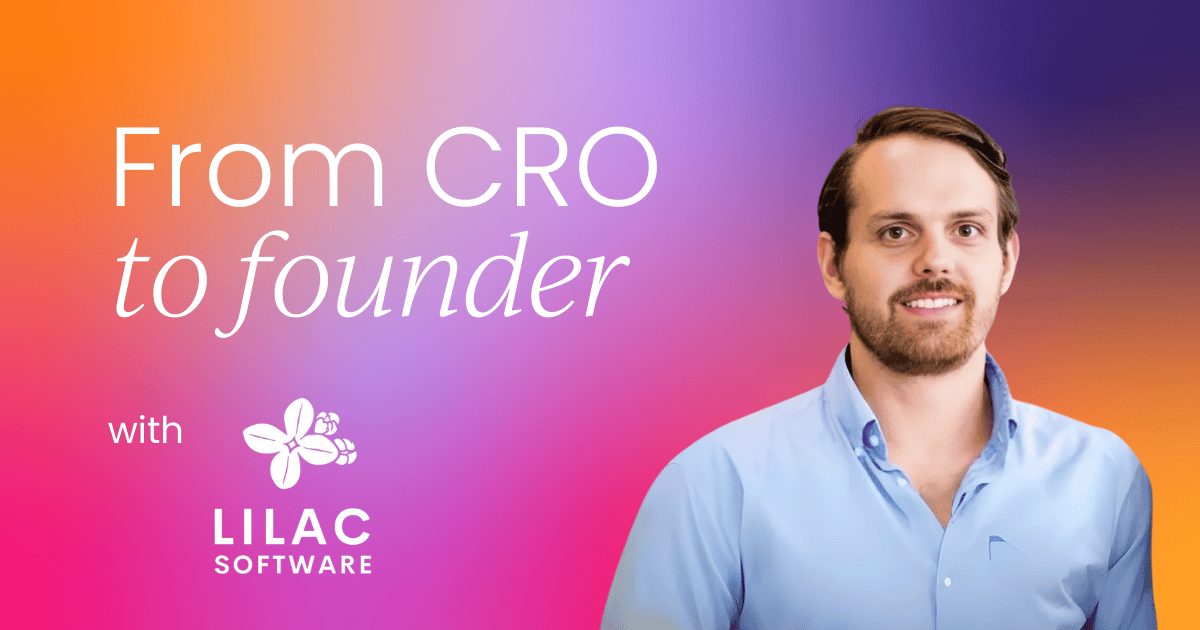This article comes from Alex Schaefer’s insightful talk at our New York 2024 Chief Revenue Officer Summit. Check out his full presentation and our wealth of OnDemand resources.
Have you ever wondered what it takes to transition from a sales leader to the founder of a startup? It’s not just about having a great idea or a perfect plan.
For me, the journey from Chief Revenue Officer (CRO) to co-founding Lilac Software wasn’t a straight path. It was the detours, unexpected opportunities, and lessons learned along the way that prepared me for this transition.
This isn’t a guide filled with formulas or sales tactics. Instead, it’s just an honest reflection on the experiences and insights that helped me grow beyond my core roles and prepare for something bigger.
So whether you’re in RevOps, sales, or another leadership position, I hope my story encourages you to think beyond your current responsibilities and embrace the opportunities that could redefine your career.
Let’s dive in.
Lesson 1: Embracing the side quests
The truth is, my most significant growth didn’t come from staying within the boundaries of my core job. Sure, you need to excel in your role, whether it’s demand generation, new business, or RevOps. But the side quests—those opportunities that seem outside your lane—are often where the real learning happens.
For example, during one role, I was tasked with evaluating software solutions for areas where I had absolutely no prior expertise. It forced me to research, create evaluation criteria, and collaborate with teams to identify what “good” looked like.
That experience not only broadened my skill set but also gave me confidence in navigating new, unfamiliar domains. If you’re looking to grow, seek out these side quests. Take the time to learn beyond your core responsibilities. It’s the best way to prepare for bigger roles.
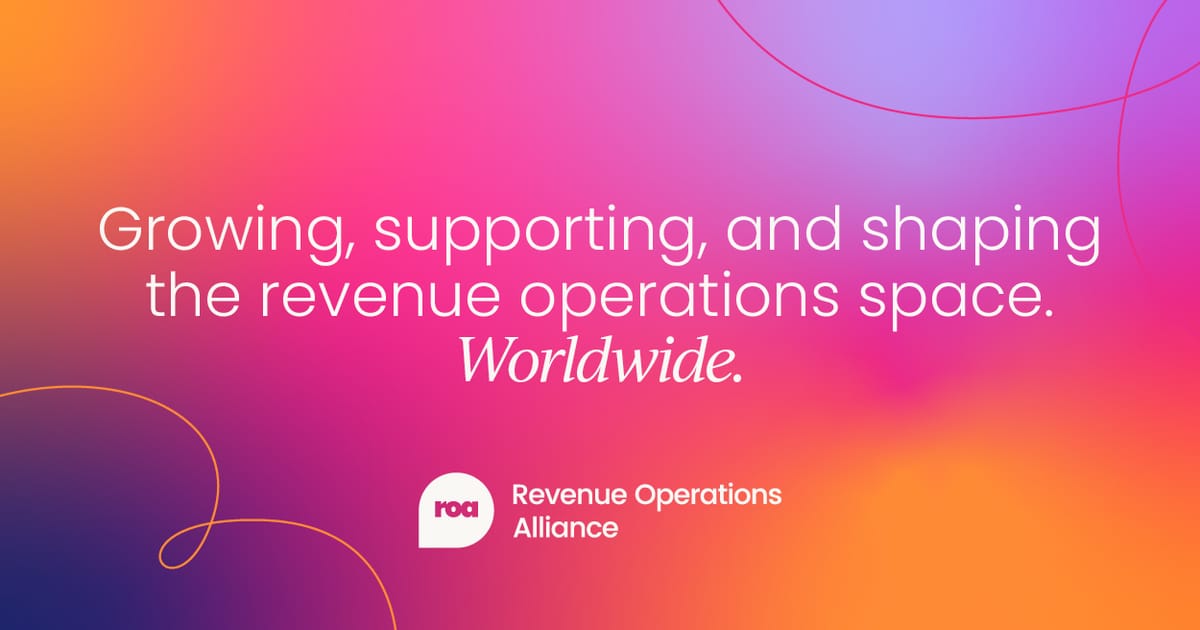
Lesson 2: Relationships matter more than you think
One of the most pivotal relationships in my career started during my time as CRO at DeepCrawl. I worked with a CTO at one of our integration partners. We weren’t particularly close, but we had mutual respect for each other’s work.
Years later, when she had an idea for a healthcare startup, she reached out to me for advice. Over a series of conversations, that casual relationship turned into a co-founding partnership for Lilac Software.
This experience taught me the importance of maintaining relationships. You don’t have to be best friends with everyone you meet, but staying connected—even in small ways—can lead to unexpected opportunities. I make it a habit to review my LinkedIn network every couple of months and reach out to people I admire or enjoyed working with.
It’s a simple practice, but it keeps relationships alive and creates opportunities for collaboration down the road.
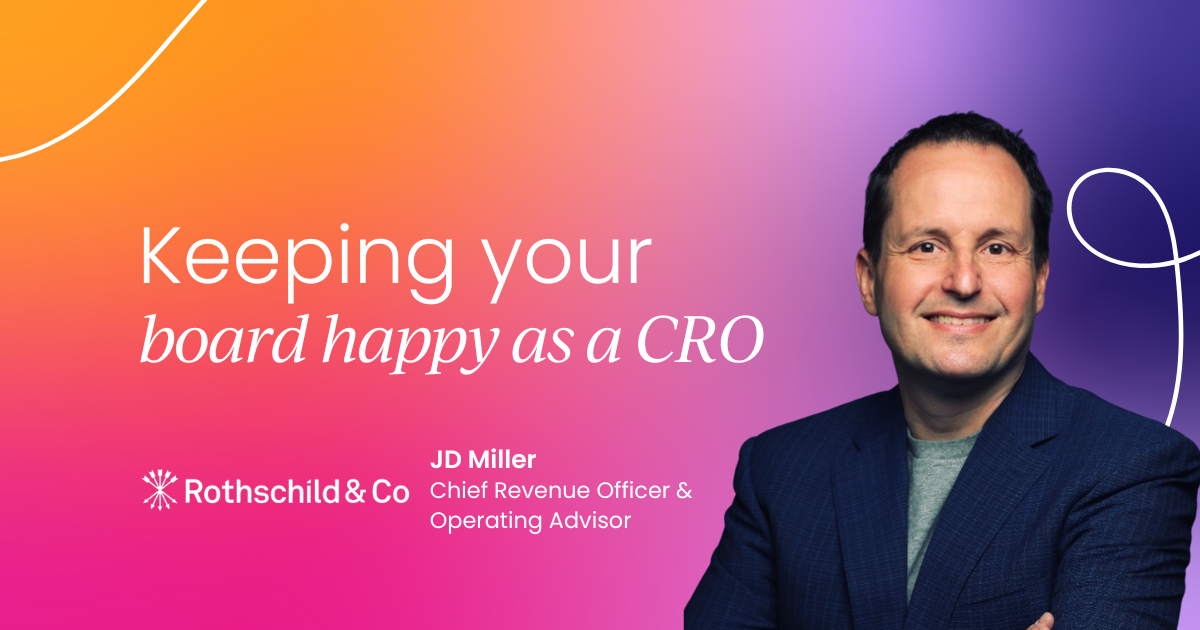
Lesson 3: Context is king
When I think about my career decisions, one guiding principle has been to prioritize context over titles or prestige. Early in my career, while many of my peers pursued high-paying roles at big consulting firms, I joined an early-stage startup. The role paid less and required more hours, but it gave me invaluable experience in building from the ground up. It also aligned with my long-term goal of becoming a founder.
If you have aspirations to grow beyond your current role, whether that’s becoming a CRO, CEO, or founder, think about the context of your next move. What skills will it help you develop? What gaps in your experience will it fill?
It’s easy to be drawn to a flashy title or a comfortable paycheck, but those choices don’t always prepare you for the future roles you aspire to.
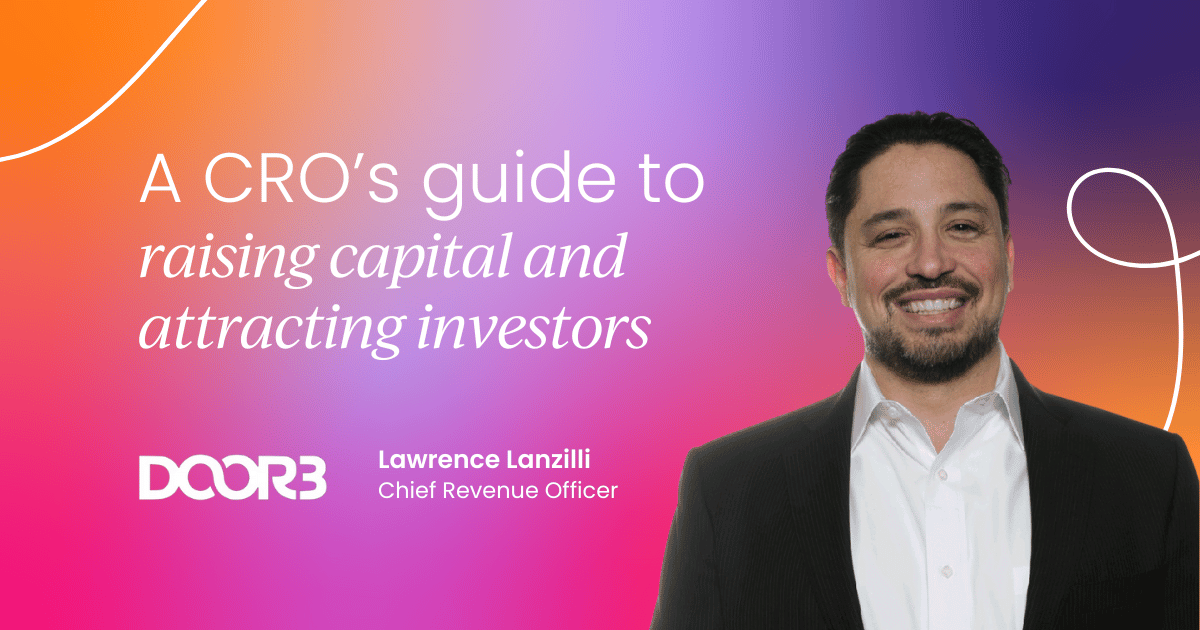
Lesson 4: Seeing the bigger picture
One of the biggest shifts I had to make as I moved into broader leadership roles was developing a holistic perspective of the business. Early in my career, my focus was narrowly on hitting sales targets and driving revenue. However, as I took on more responsibility, I realized that true leadership requires understanding how all the pieces of the business fit together.
This is one of the reasons I pursued an MBA at INSEAD Business School. It gave me a framework to think about the broader dynamics of a business—from marketing to operations to customer success.
That said, you don’t need an MBA to develop this perspective. Volunteer for cross-functional projects, spend time learning about different departments and ask questions. The more you understand how your company operates as a whole, the better positioned you’ll be to lead at a higher level.
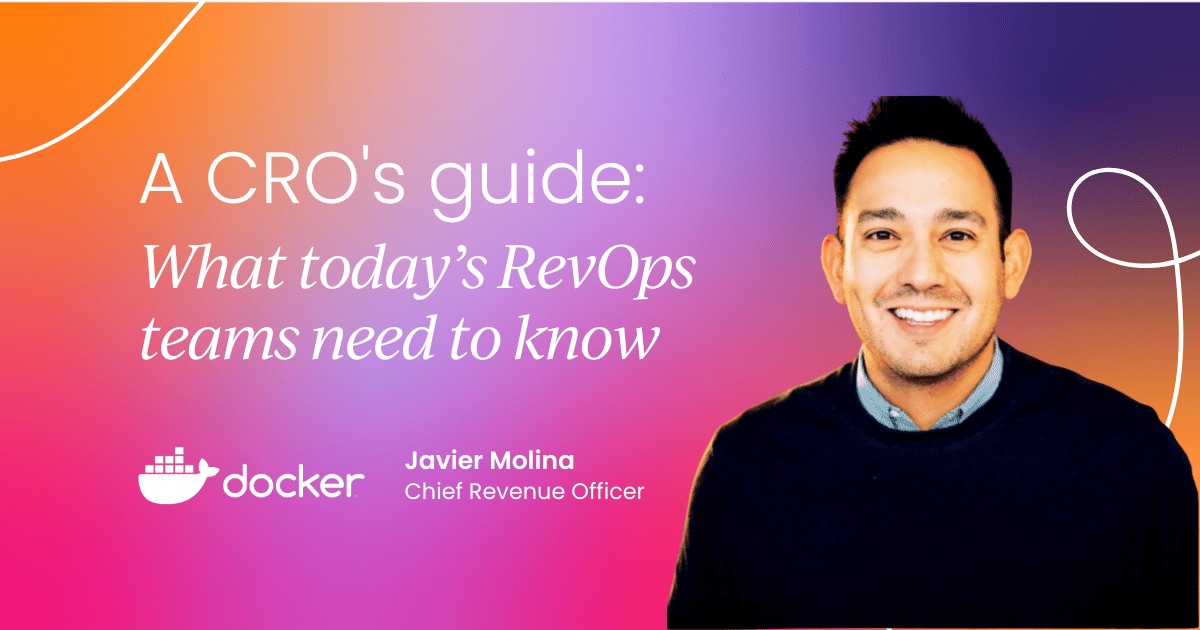
Lesson 5: Protecting your reputation
Reputation is everything. During a challenging period at one of the startups I worked for, there was pressure to embellish our performance metrics for investors. I chose to remain transparent, even though it wasn’t what people wanted to hear.
Looking back, I’m convinced that maintaining my integrity was the right choice. Those same investors later provided strong references that helped me secure funding for Lilac Software.
Your reputation isn’t built in a day, but it can be tarnished quickly. Be honest in your dealings, even when it’s uncomfortable. People remember how you handle tough situations, and those moments often define your professional credibility.
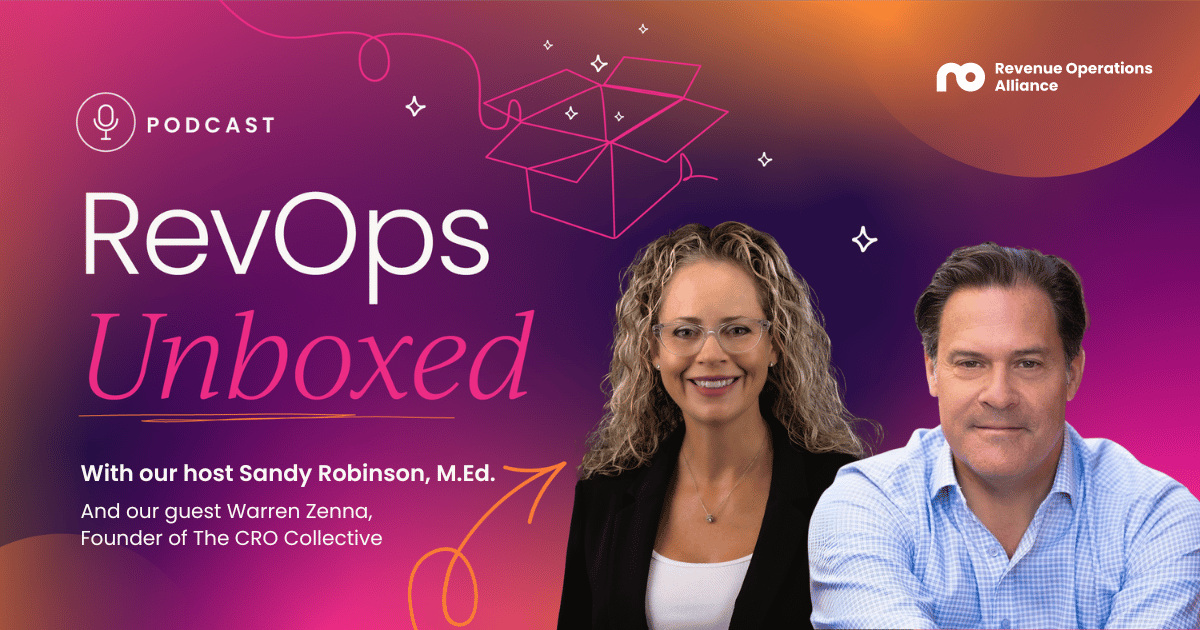
Lesson 6: The power of hard skills
With the way that data dominates today’s world, hard skills are non-negotiable. As a sales leader, it’s not enough to rely on analysts to crunch the numbers. You need to be comfortable manipulating data, building models, and creating compelling presentations.
These skills not only help you lead more effectively but also set you apart in a crowded field.
Beyond analytics, understanding the technical side of your business is invaluable. Spend time learning how your product works, how it’s built, and how your engineering team thinks. The more technical fluency you have, the more credible you’ll be when collaborating across teams.
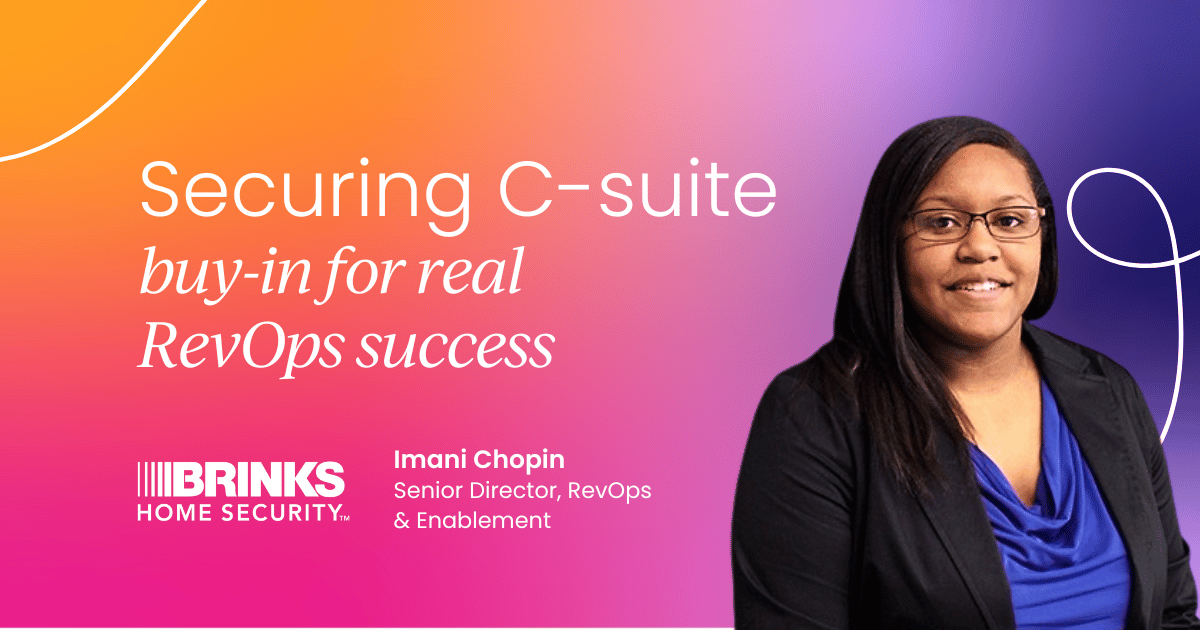
Lesson 7: Serendipity and staying open
One of my favorite quotes is from Steve Jobs:
“The dots connect themselves in hindsight.”
That’s how I feel about my journey to becoming a founder. I didn’t have a burning product idea or a clear plan to launch a startup. Instead, I stayed open to opportunities and focused on building relationships and skills. When the right opportunity came along, I was ready to take the leap.
If there’s one takeaway here, it’s to stay open to serendipity. You don’t need to have everything figured out. Focus on growing, building connections, and saying yes to opportunities that push you out of your comfort zone. You never know where they might lead.
Final takeaways: Be intentional about your growth
If you’re in RevOps or any other leadership role, and you aspire to something bigger, take the time to identify your goals and the gaps in your skill set.
Seek out experiences that will help you fill those gaps, even if they’re outside your immediate comfort zone. Stay connected to your network, protect your reputation, and never stop learning.
Growth isn’t linear. It’s a mix of hard work, side quests, and a little bit of luck.
If you’re intentional about your path, you’ll be ready when the right opportunity comes your way. Whether you dream of becoming a CRO, a CEO, or a founder, the steps you take today will shape the opportunities you have tomorrow.


 7 min read
7 min read
 Follow us on LinkedIn
Follow us on LinkedIn







